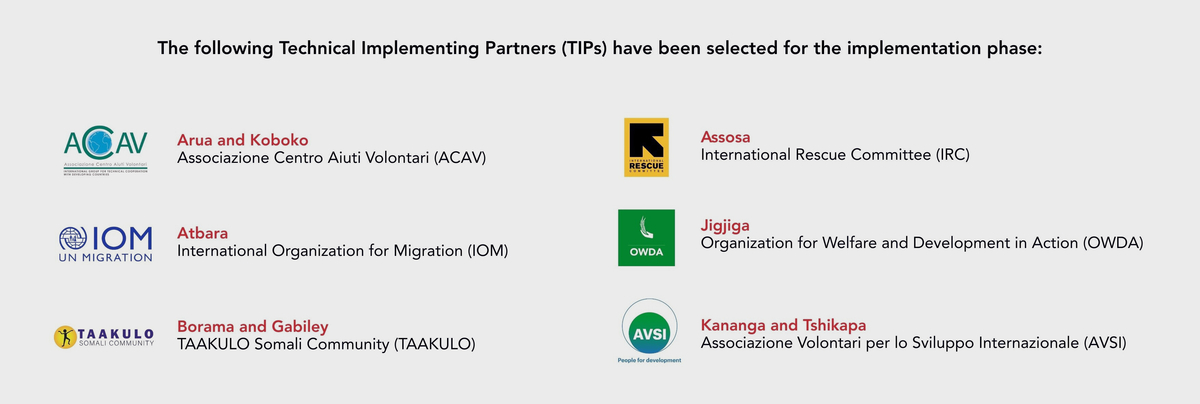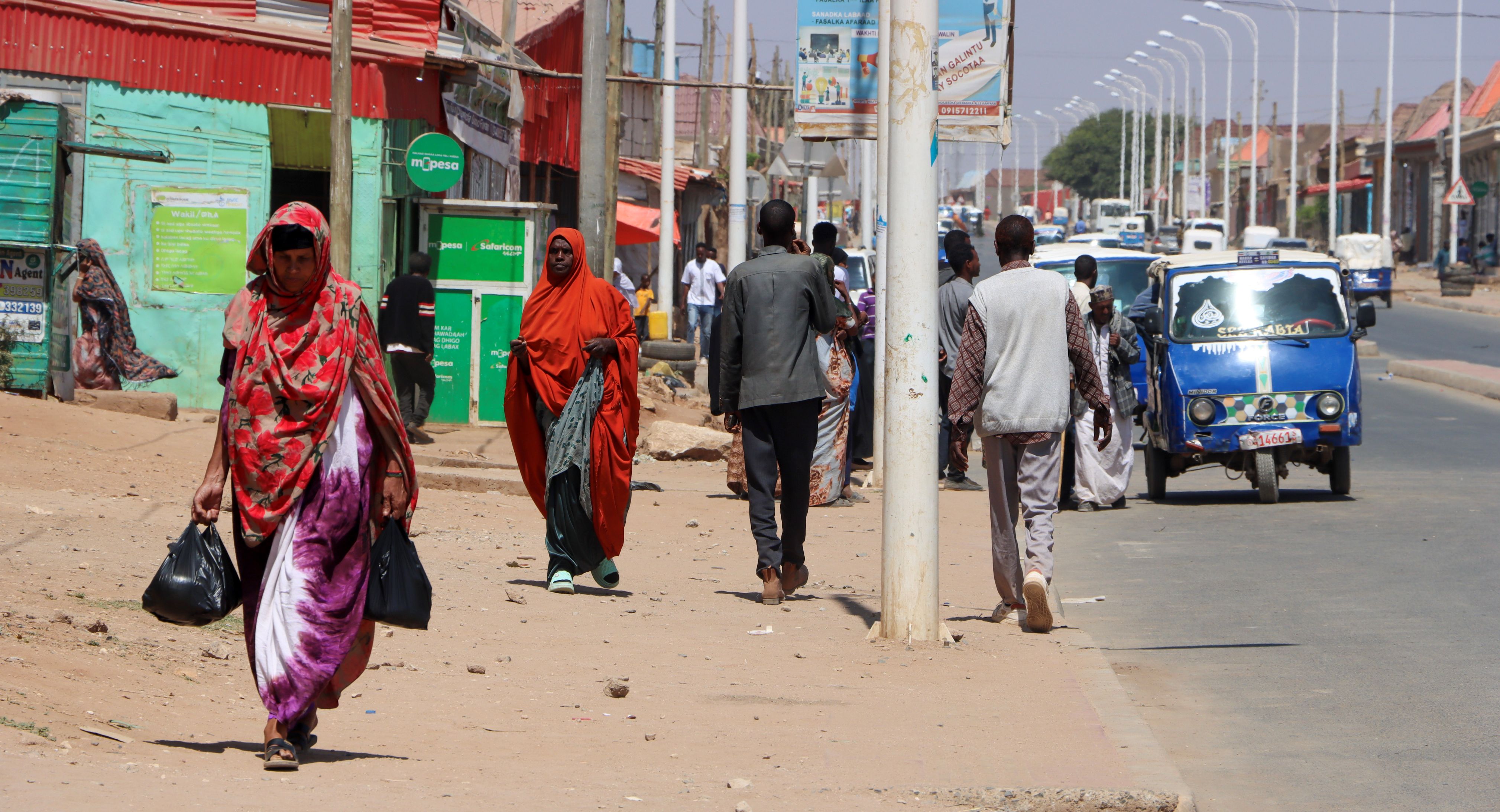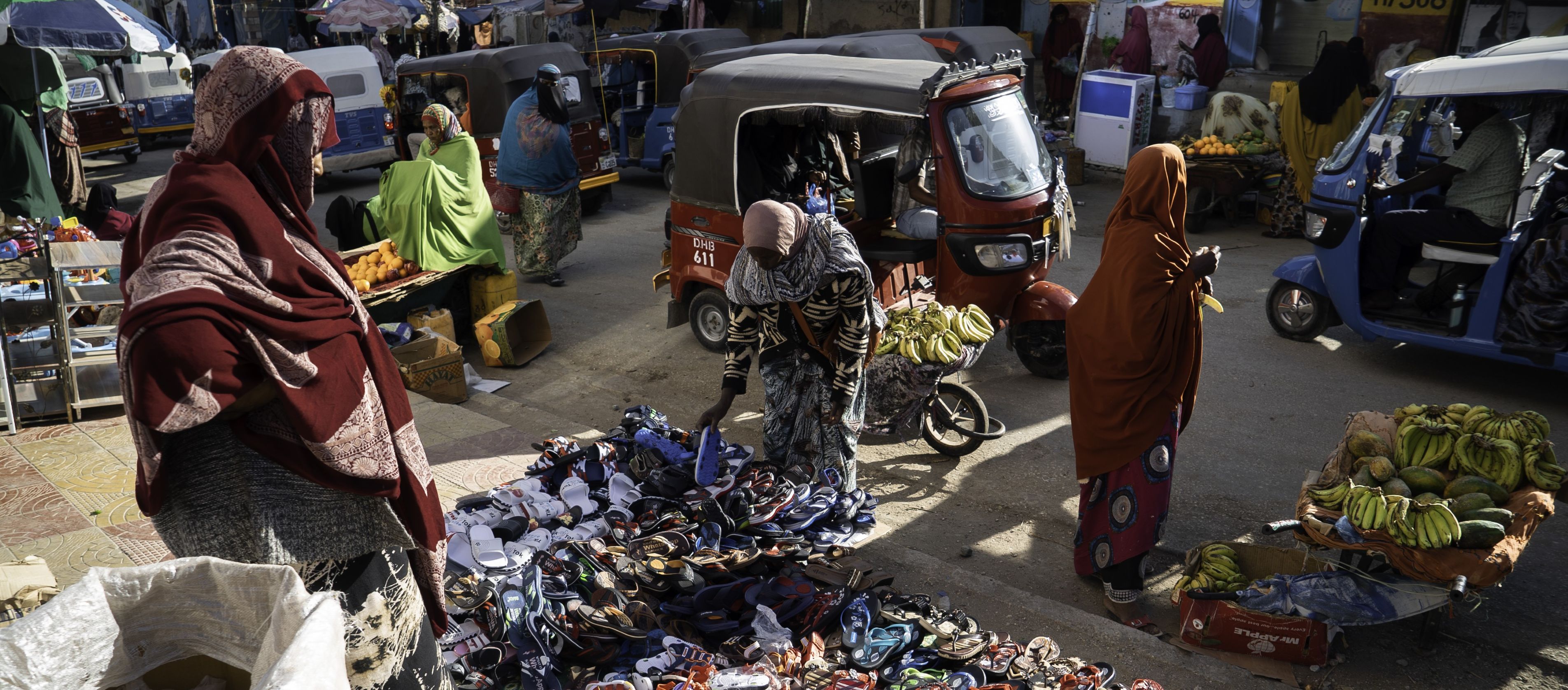With global displacement at record levels, secondary cities in Sub-Saharan Africa are bearing the brunt of the crisis. Already operating with limited resources, many face rising pressure from growing populations, strained infrastructure, and increasing social tensions.
The Sustainable Urban Integration of Displacement-Affected Communities (SUIDAC) Programme offers a new way forward. It puts cities at the centre, providing tools and resources to drive long-term change that benefits both displaced people and their host communities.
Rather than seeing migration only as a challenge, SUIDAC supports community-based solutions that enable cities to innovate, create inclusive urban spaces, and strengthen local economies.
SUIDAC is funded by the European Union and implemented by Cities Alliance in partnership with nine cities: Kananga and Tshikapa in the Democratic Republic of the Congo (DRC), Assosa and Jigjiga (Ethiopia), Borama and Gabiley (Somalia), Atbara (Sudan), and Koboko and Arua (Uganda). Each city is paired with a Technical Implementing Partner (TIP) and receives technical support from a Cities Alliance expert to provide on-the-ground support and help manage risks.

Highlights from the inception phase
The programme’s inception phase (July 2024–May 2025) has delivered key milestones that now pave the way for implementation:
- National steering committees were established in all nine cities to provide strategic guidance and ensure strong coordination between the local and national levels.
- First committee meetings took place in Uganda and Sudan (December 2024), followed by Somalia, Ethiopia, and the DRC (February 2025). These sessions aligned SUIDAC with national development agendas and helped set common goals.
- An Area-Based Data Management and Protection Plan was developed in partnership with the implementing partners and the municipalities. It establishes clear, ethical data protocols to support planning and accountability.
- Nine city-specific feasibility studies were completed, offering detailed analysis of needs, gaps, and opportunities. Each was co-led by local governments and communities.
- The first SUIDAC Regional Dialogue took place in Jigjiga (17–19 February 2025), launching a six-part series to promote peer learning and strengthen city leadership on urban displacement.
Laying the groundwork for local action
The feasibility studies are a cornerstone of the programme. Built through a mix of data, 400-household surveys, interviews, rapid assessments, and community consultations, they provide a solid evidence base of local needs, urban challenges, and community priorities.
Across the cities, several common challenges emerged, including overloaded infrastructure, lack of legal documentation for displaced people, limited economic opportunities, and inadequate access to essential services such as education, healthcare, water, and sanitation.
While local contexts vary, four shared priorities for future action are clear:
Strengthen local governance
Improve municipal revenue generation
Enhance service delivery
Foster social cohesion to support the integration of the displaced
Our biggest challenge is providing essential services, education and healthcare, to a growing population. With 129 pupils crammed into a classroom meant for 55, the strain is evident. As our city expands, so do the challenges and opportunities of hosting refugees and IDPs. We must act now.
Wadri Sam Nyakua, Mayor of Arua, Uganda
The studies also offer practical insights on funding needs, social cohesion, and environmental sustainability, providing a roadmap for project design and implementation.
Site visits at the first SUIDAC regional dialogue in Jigjiga in February 2025.
Moving into implementation
With the groundwork laid by the feasibility studies, SUIDAC is now entering a 36-month implementation phase focused on empowering local governments, strengthening collaboration, and integrating displacement-affected communities into city life.
The first phase focused on building trust and local leadership, placing municipalities at the centre of long-term displacement solutions. As SUIDAC moves into implementation, we're advancing a sustainable, community-rooted model where displaced and host communities can thrive, and local governments lead with purpose.”
Florence Lozet, SUIDAC Programme Coordinator
Municipalities will be provided direct grants and lead the implementation, supported by the implementing partners and Cities Alliance. Planned activities include expanding access to water and sanitation, building inclusive schools, improving maternal health services, and boosting local economies, all tailored to the specific needs identified in each city.
National steering committees will ensure government alignment and sustained support throughout implementation. Peer learning, city-to-city exchange, and regional engagement will continue to be key pillars, feeding into the next regional dialogue planned for September 2025.









